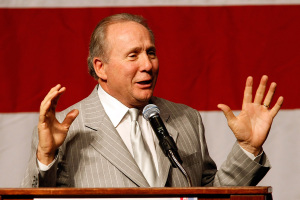American Academy of Pediatrics accused of silencing doctors' criticism of puberty blockers

The American Academy of Pediatrics has been accused of stonewalling debate on hormone drugs and puberty blockers as some member doctors have pushed back against a drug-first approach for children with gender dysphoria.
In a document titled "In Support of a Rigorous Systematic Review of Evidence and Policy 4 Update for Management of Pediatric Gender Dysphoria" (Resolution 27), five AAP members voiced concerns about using hormones and surgeries as the first line of treatment for gender dysphoria instead of counseling or therapy.
The medical professionals cite evidence for psychotherapy as a treatment option, including a systemic review conducted by the Finnish Health Authority purporting this should be the first line of treatment instead of puberty blockers and sex hormones.
In the resolution critics hoped would be considered at the 2022 AAP Annual Leadership Conference this month, AAP members call for the academy to undergo a systemic review regarding the safety of childhood sex transition and update its 2018 guidelines based on the results.
The AAP's 2018 guidelines for gender dysphoric children include medical intervention and puberty suppression as potential ways to help those who identify as the opposite gender.
However, the AAP has allegedly blocked members from launching a policy review based on Resolution 27 and blocked comments on Resolution 27.
In comments leaked to The Daily Mail by a whistleblower, members voiced their concerns in the comments section for a different resolution on the AAP's members-only website.
One member said there is no "open dialogue on the medical treatments by the AAP." Another, Julia Mason, an Oregon-based pediatrician and one of the Resolution 27 authors, said an increasing number of colleagues want to slow down handing out puberty blockers. Instead, they want to spend more time evaluating trans-identifying teens.
In response to an inquiry from The Christian Post, a spokesperson for the AAP cited a blog written by AAP President Moira Szilagyi, MD, Ph.D., FAAP, last Wednesday.
Szilagyi wrote that AAP's gender-affirming policy is grounded in supporting LGBT teens through their "journey" and helping them be "the best person they can be."
The spokesperson also pointed to the organization's 2018 guidelines outlining its approach to children with gender dysphoria.
Genspect, an organization that supports "an evidence-based approach to gender distress," published an open letter last month criticizing AAP for stifling debate on the resolution.
"We want our children to be affirmed as whole human beings, and we want them to be treated with evidence-based interventions which ensure that benefits outweigh risks," the open letter states.
"We are very concerned that the AAP is currently representing only one set of views on how best to help our children thrive — namely both social (names, pronouns, etc.) and medical transition (puberty blockers, cross-sex hormones, surgeries), which the AAP refers to as 'affirmative care.' Many of our children have received this care and are anything but thriving."
"It is alarming that not a single chapter or committee within the AAP was willing to 'sponsor' a resolution that asks to conduct a non-partisan and systematic review of evidence in pediatric gender medicine — something the AAP has never done," the group's letter adds.
"It is even more alarming that the AAP appears to be preemptively suppressing debate by not allowing comments on 'unsponsored' resolutions, a rule that did not exist last year when a similar 'unsponsored' resolution got many supportive pediatrician votes and comments."
Quentin L. Van Meter, M.D., president and co-executive director of the conservative association American College of Pediatricians (APEDS), said that the AAP's guidelines "are the opinions of ideologues, not scientist physicians or members."
"When I once was an active Fellow in the American Academy of Pediatrics (I resigned ten years ago), I was very active in leadership roles at the state and national levels," he wrote in a Friday statement to CP.
"I attended the Annual Leadership Forum where the state Chapter leaders and District leaders from the United States would bring resolutions from the membership to a discussion and vote that resulted in a slate of proposals based on current concerns of the membership at large."
"Well, last year and this year, there were resolutions which called to question the accuracy and wisdom of following the 2018 AAP Transgender Policy paper," Van Meter wrote.
"The resolution from the 2021 Forum was approved by 80% of the voting members, and yet it was never given consideration by the Executive Leadership and it was buried without comment."
Van Meter said this upset members and prompted a stronger resolution for the 2022 forum. To prevent the forum from voting on this year's resolution, Van Meter claims the AAP changed its rules to prevent discussion and voting on Resolution 27.
Jay Richards, the William E. Simon Senior Research Fellow in Religious Liberty and Civil Society at The Heritage Foundation, a conservative think tank, believes parents and the general public should be outraged by the news.
"Those of us that have followed this debate have known for a long time that the scientific basis for using, especially puberty blockers and cross-sex hormones on kids, is very, very thin, to put it mildly," he told CP in an interview.
"We suspected something like this was true, namely that most practicing pediatricians have not been consulted."
Richards stated that the data is "complicated" on how to treat best children who have gender dysphoria. The policy expert noted that some evidence suggests that boys and girls who initially identify as transgender will grow out of it as they mature.
"So, in other words, for many kids, puberty itself seems to be the cure for childhood gender dysphoria," he said.
"That alone should tell you that you want to take a conservative approach to helping the child become comfortable with his or her body and work through other kinds of psychological co-morbidities was always the wiser approach."
A 2017 document published by the Christian organization Focus on the Family points to previous research suggesting that most children suffering from gender dysphoria grow out of their gender confusion by the time they reach puberty.
The organization cites a 2010 study titled: "Desisting and persisting gender dysphoria after childhood: a qualitative follow-up study."
The study was led by Dr. Thomas D. Steensma, a health psychologist with experience in counseling individuals with gender incongruence and supporting them in their medical transition.
Proponents of allowing children to socially transition at younger ages argue that such findings on detransitioning trends in children with gender dysphoria are overblown.
Richards said that the long-term effects of puberty blockers and cross-sex hormones are unknown and noted that the synthetic blockers being prescribed to children are used off-label and have not been approved by the Food and Drug Administration for gender transitioning purposes.
Richards believes this is why countries such as the United Kingdom are pushing back against these protocols.
The research fellow does not believe the AAP will change its official policy on these treatments in the short term. He suspects the policies were based more on ideology than careful consultation of scientific evidence, and he does not expect the AAP will be "easily shamed out of it."
"Medium-term, I'm very optimistic that they will essentially be compelled to change their minds because the evidence that these treatments not only don't work but have their own severe problems will become so overwhelming that they'll have to reverse course."
Andre van Mol, the co-chair of the committee on adolescent sexuality at the American College of Pediatricians, said in a statement to CP that European countries appear to be doing "a hard 180 ... while the USA, Canada, and Australia race toward the cliff."
Health authorities in the U.K. have instituted a multi-year review of their gender transition program.
"An official interim report distanced itself from the 'affirmation model' by emphasizing that this model of care 'originated in the USA' and signaling that change is coming to Great Britain," the Genspect open letter states.
Last month, the U.K. National Health Service ordered the gender clinic at the Tavistock and Portman NHS Foundation Trust to close following the publication of a review determining that the clinic's "clinical approach and overall service design has not been subject to some of the normal quality controls that are typically applied when new or innovative treatments are introduced."
The U.K. law firm Pogust Goodhead has launched a website featuring a "lawyer bot" to help people "investigate a claim involving treatment received and Gender Identity Development Services (GIDS) provided by the Tavistock Centre."
People who underwent gender transition services at the Tavistock and Portman NHS Foundation Trust as a minor or their guardians can fill out the form. The clinic is expected to face a massive class-action lawsuit from individuals who experienced adverse effects from transitioning.


























